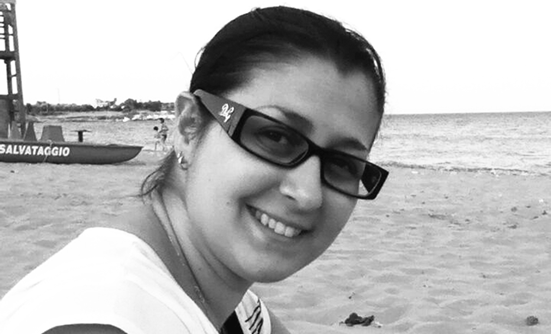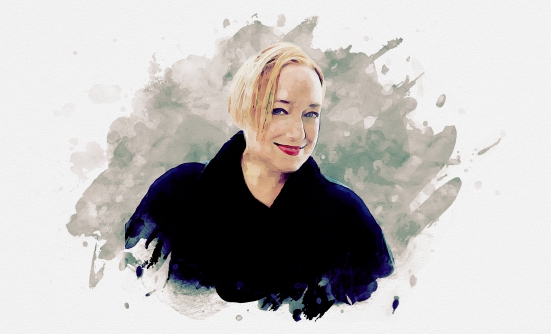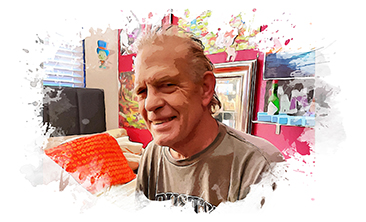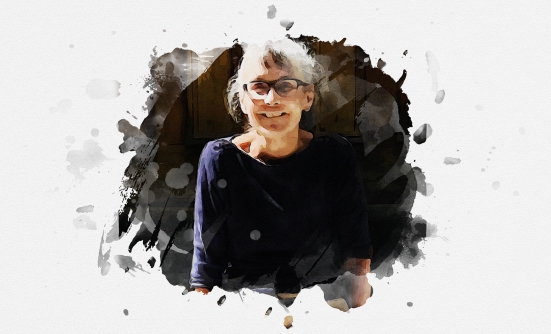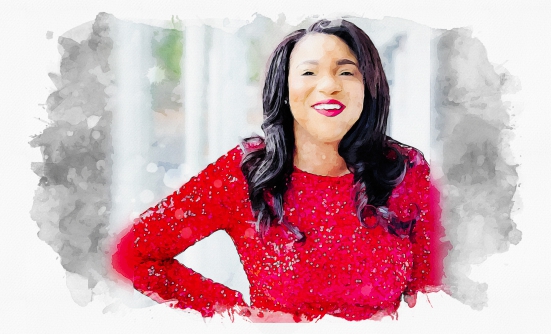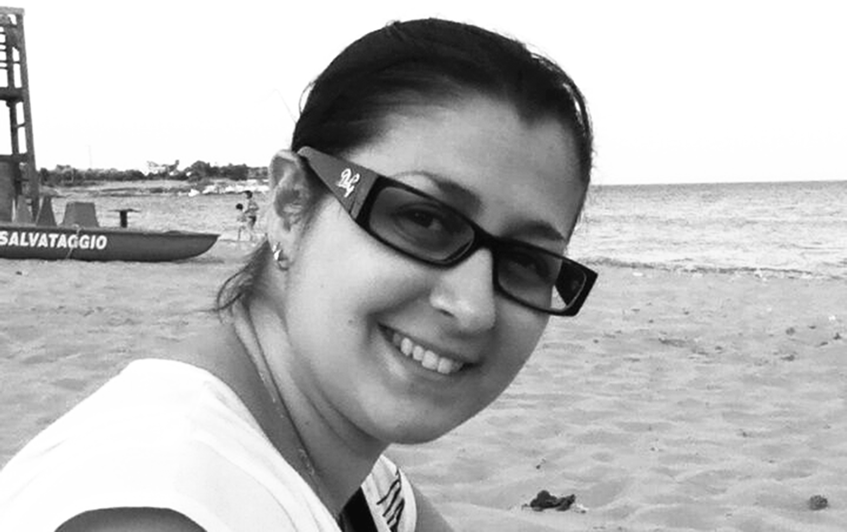
I never smoked, but I got lung cancer. I thought I’d be dead, but I’m living, really living. I want to go back to work, but I’m told that I can’t. Since I turned 30, my life has been a series of polar opposites.
When I was in my 20s, I was going to have it all: career, car, house, husband, 2.5 children. In reality, I was working 24/7 as a new elementary school teacher, being all things to all people, single, and living at home. Not exactly living the dream.
One night I was working late and felt a little bump on my collarbone. My background is in kinesiology, so I know there’s a lot of stuff going on in our head and neck region. I made an appointment with my doctor, who didn’t think it was anything serious, but sent me for an x-ray, just in case. The x-ray revealed a 2.2-centimeter nodule, and everything cascaded from there.
You’re Joking, Right?
Cancer was the farthest thing from my mind. Once I started trying to guess what I had, I figured I had breast cancer, simply because I was a woman and had breasts.
When the oncologist told me it was lung cancer, I thought someone was playing a really mean joke on me. Who thinks they have lung cancer when they’re fit, eating healthy, and have never smoked? I certainly didn’t!
They rushed me into exploratory surgery to see just how far it had spread. Turns out I had stage IIIA adenocarcinoma of the lung. Once I healed from the surgery, I had 2 rounds of chemotherapy and 28 rounds of radiation, followed by a lobectomy (removal of a lobe in the lung) and an additional 2 rounds of chemo. That took about 6 months total.
Before I started picking up from where my life had stopped, I fell apart mentally, trying to deal with the ramifications of having cancer. No one tells you that psychosocially, things are going to be hard after you get diagnosed. My mental health has always been challenged by depression and anxiety, and cancer exacerbated both.
A Year of Living Cancer-Free
I had a year of living cancer-free, until the cancer recurred with several new nodules in my lungs. Then I found out I wasn’t eligible for any kind of treatment—radiation was out, because they’d already done that. I wasn’t eligible for surgery; and chemo was out, because I was too healthy.
They told me to go home and come back only when symptoms developed. I started looking into additional treatment options—to no avail—and I figured I’d be dead in a year or two.
Better to Burn Out
If I was going to die, I figured I’d start living. I gave up caring about conventional expectations and went on leave again. I spent copious amounts of money on whatever I wanted. I got tattoos, lots of them. I went to Italy for 3 months. I joined every online dating service ever conceived of. If I was going to kick the bucket, I figured, I should have fun.
Coincidentally, before I left for Europe, I stumbled on a Facebook post that said something like, “new hope for lung cancer patients.” I read the article with baited breath. It was about a clinical trial for Xalkori (crizotinib), which is used for people with ALK-positive lung cancer.
I met with a clinical trial team just before leaving. They told me my biopsy would be sent to a lab in Cleveland for genetic testing to see if there are any gene mutations involved.
On Being an “ALKie”
In the middle of my trip, I got the best news of my life. I was an “ALKie,” or rather, I had stage IV ALK-positive adenocarcinoma of the lung. So I was enrolled in the clinical trial immediately after I returned from my trip.
Three weeks after I started the trial, all those nodules in my lungs disappeared. I was “NED” (meaning no evidence of disease) for 5 years, until the cancer showed signs of coming back in 2016.
I enrolled in a new clinical trial for a third-generation drug, called lorlatinib, an investigational drug that is targeting my specific (ALK-positive) type of lung cancer, and things have seemed really good for the past 2 years.
Stability at Last
Therapy and antidepressants have helped me cope with living with cancer. At first, I tried to run away from that heaviness after I was diagnosed. For a really long time I wasn’t able to live in the moment. I’m better at it now, but I still never know if I’m going to react positively to the treatment; if I’m going to be stable.
Finding a support community of other people with metastatic or incurable cancer has been key. It’s been very helpful being able to talk it out with others. I have a very good therapist, too, with whom I connect well. And antidepressants help; I don’t like myself when I stop using them.
Dealing with Change
I don’t like how my body has changed. I’ve gained 100 pounds—a side effect of the treatment, and because I’ve had less energy for physical activity. I look in the mirror, and don’t recognize myself. But my body has been through a lot, and if I can be healthy but weigh more than I’d like, then so be it.
I’d like to go back to work, but I’m caught in some kind of paperwork purgatory. Even though I feel healthy enough, the insurance company told me to “focus on my health.” There’s a risk I could lose my health insurance benefits if I started working again. I’m considering whether to pursue legal action; I have a feeling they may have infringed on my rights.
A Boomerang of Luck
It is really crazy that, in a roundabout way, cancer has given me everything I’ve ever wanted. When I didn’t think I’d live long enough to get what I wanted in my 20s—a house, husband, car, dogs—they just kind of fell into my lap.
I met my husband a week after I started the clinical trial. After we hit it off on our first date, I figured I’d tell him what was going on by the second date. I thought, “If he stays, he stays. And if he doesn’t, then it wasn’t meant to be in the first place.”
I thought he would freak out and leave when I told him I had (at that point) stage IV cancer. It didn’t phase him at all. He was amazing! Seven years later, and here we are, married, with 4 “fur-babies.”
Being True to Myself
Back when I thought I was going to die, I stopped wasting my time and energy on people or things that didn’t matter to me. If a date wasn’t going great, I’d say thanks for a nice time, pay for my meal, and go. Why beat a dead horse?
Conversely, all my feelings about life in general became much more intense. I pay attention to the miracle minutiae that I didn’t have time for before—cloud formations, the smell of the air, the color of the grass.
Knowing my time is finite has given me the courage to be true to myself—honoring what’s important to me, what matters. Cancer isn’t a gift. But I’ve tried to be open to anything—negative and positive—that has come into my life because of it.
I’ve gained this amazing life and connected with some truly remarkable people. That would not have happened without cancer.





